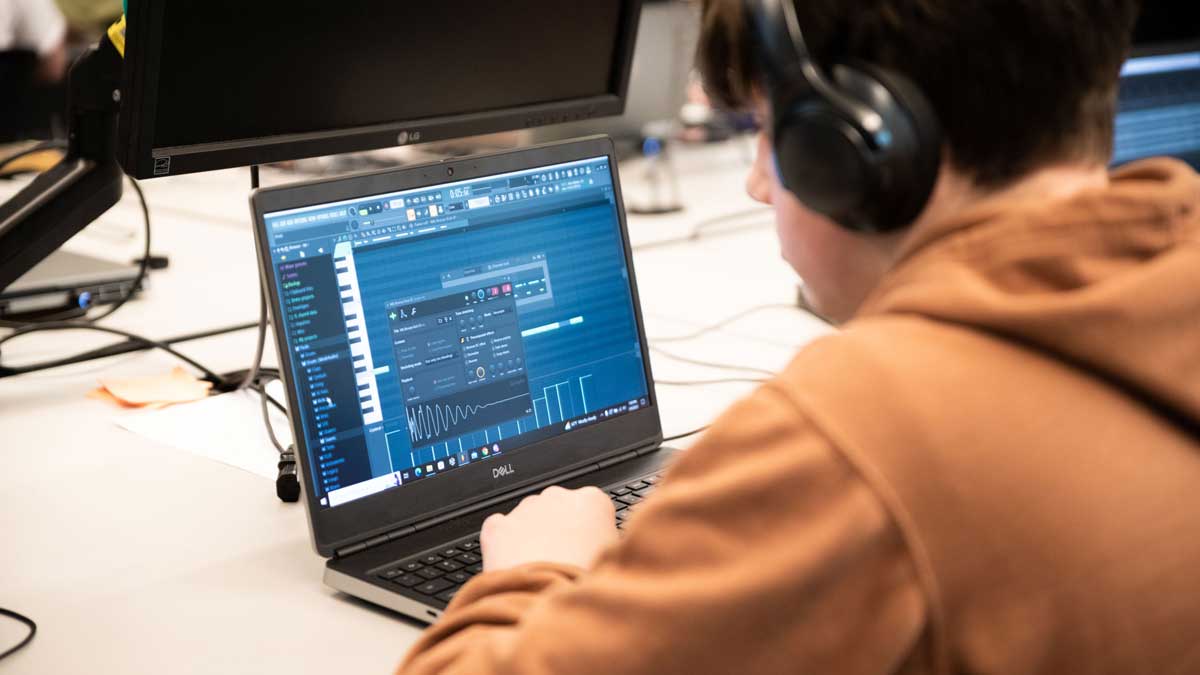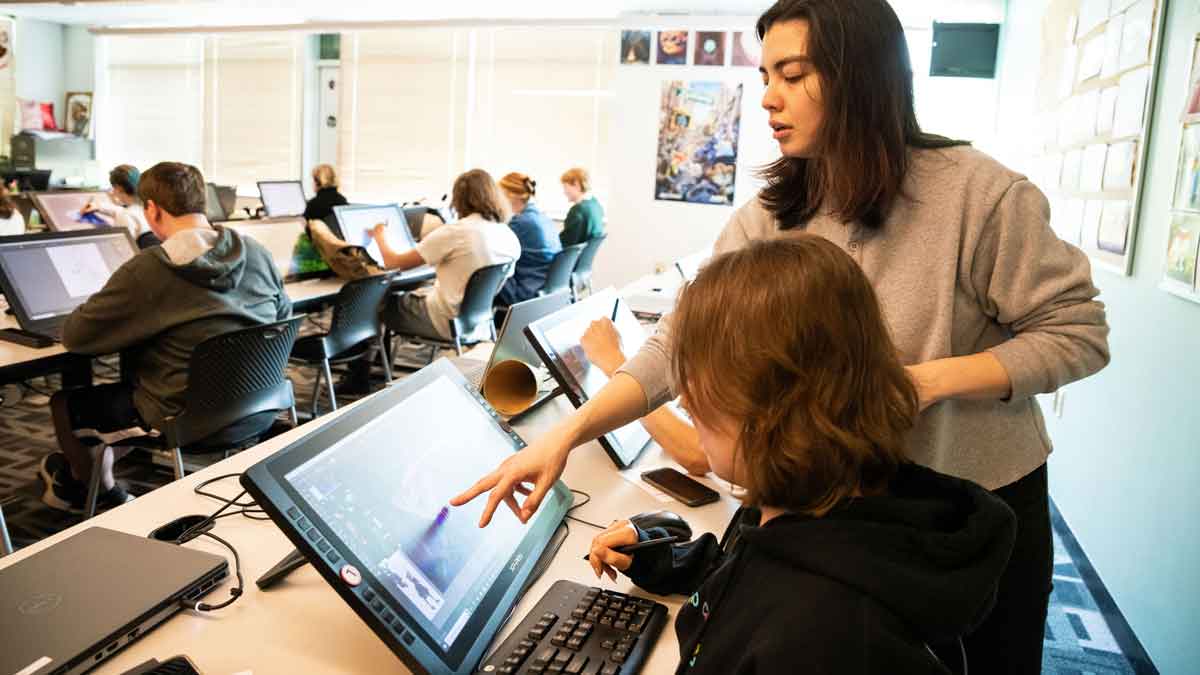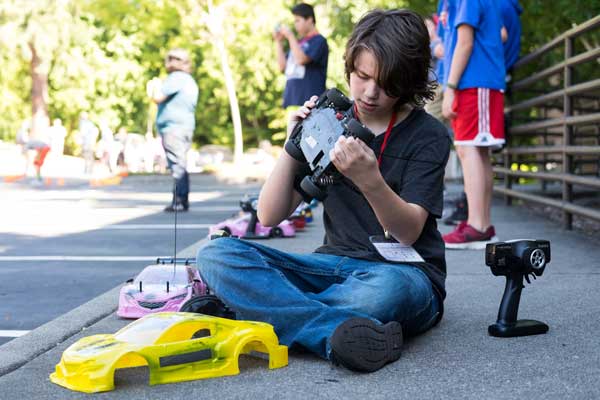Explore the path to an in-demand, creative career
DigiPen Academy offers a wide range of programs that prepare high school students for study and careers in fields requiring creative digital skills or data analysis: Art & Animation, Data Analytics, Game Design, Video Game Programming, and Music & Sound Design.
Over the past two decades, the students who have learned to draw, code, program, and design with us, have gone on to excel at some of the world’s leading tech companies, video game studios, and start-ups. Our programs have been the first step in preparing them for careers that include:
- Game developers and designers
- Software and application developers
- Audio engineers
- Film composers
- Digital interface designers
- Software engineers
- Animators
- Creative directors
Grow in confidence and skill
With the help of our expert instructors and cutting-edge technology, DigiPen students are able to explore their passions and build the confidence they need to succeed. Whether they are interested in pursuing a career in the tech industry, or simply want to develop their skills or explore a passion, our Skill Center Programs, which run the entire academic school year, and four-week Pre-College Summer Programs offer:
- An accredited curriculum with the opportunity to earn Advanced Placement (AP) credits or college credit
- Project-based labs that offer practical, “real world” learning in a team environment
- A student-centered approach that focuses on each student’s growth, goals and talents
- World-class technical and creative instruction
- Core programs that align with DigiPen Institute of Technology’s degree programs


